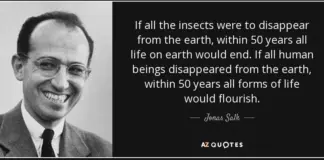
Submitted by David Garcia,
In last week’s post I spoke about the importance of denial during grief, as a “shock absorber” for the distressing reality that we all face at some point in our lives.
The denial phase must be a temporary one, or it has the potential to destroy us if we get stuck there. I suggested some tips on how to make sure you (or your loved one) can navigate that initial period as a time of grace.
As we begin to accept the reality of what has happened – whether it be a death in the family, loss of a pet, a broken relationship, miscarriage or major disappointment- other emotions can begin to surface.
Anger is often one such very strong emotion that will confront us like it or not.
The anger surfaces in a myriad of ways.
You might be angry at God or the universe for allowing the event that has caused your grief to happen. You might even be angry at the one you have lost, if for nothing else, that they have left you. You might be angry at others seemingly just for living their lives and taking people and things for granted, when your loved one was robbed of that chance. You will want to slap people in the forehead when they roll out the platitudes that that mean nothing and cut deep. You might feel angry at someone who didn’t show up in your hour of need, or the person who keeps showing up and telling you what you should do next!
In an odd way, feeling angry can ground you in the midst of the “nothingness” of your pain.
So, don’t be afraid to feel the anger – just try to manage it as best you can. Here are a few tips that might help you navigate the anger.
1. Realise that you are not being yourself.
“an abnormal reaction to and abnormal situation – is normal behaviour” Viktor Frankl
For those of us who are not “angry” people, feeling angry can be quite confronting. You might wake from a dream where we have been physical with someone or something and be surprised that you ever had that emotion in you!
For some it is far easier to feel angry than sad. You might find yourself having a short fuse with everyone and everything around you. Every little thing annoys or provokes you in a way that it never has before.
At times the anger can be quite overwhelming and at other times it might just take us completely by surprise, just when we think we have overcome it. If you can understand anger as part of the journey to healing, it will help you manage it better.
2. Express then let go of the anger
Anger can destroy. If we lash out, that can be destructive. If we hold anger in, that can be just as bad. So, having a plan on how to manage feelings of anger
If you are angry at someone who is trying to help, then try not to lash out in the heat of the moment. Take a bit of time to cool down and then calmly try to talk to them, without blame, about what they are doing that is ticking you off. They will probably welcome you telling them at the least what not to do – so they can support you in the way you need.
As a lawyer specialist in contested estate matters, clients often come to see me when they are angry. I tell my clients to go scream into a pillow (or out loud for as long and hard as you can), go for a long run, work out, punch a punching bag (or other inanimate object), write out your darkest thoughts, then scrunch them up, maybe even burn them. Sometimes my clients report back and tell me how doing things like that helped them get their feelings out.
As you express anger, it will dissipate.
3. Find freedom in forgiveness
Say whaaaat? Why, when you are the one grieving should you need to think about forgiveness? You have every right to feel pain and anger and heartache and depression! So, what do you need forgiveness for? Well, here’s the thing – in my humble, completely unqualified opinion – giving and receiving forgiveness brings freedom and healing in a way that nothing else will. When you forgive others – whether they are the ones responsible for your loss, or for the pain you feel, or whether they are the ones who have wronged you while trying their best to support you – you will break something that will otherwise have a hold over you. When you ask others to forgive you for how you might’ve lashed out – you will bring restoration to the very relationships that bring meaning to your life.
If the person you need to forgive, or need to seek forgiveness from is no longer here, then consider writing a letter to them anyway, pray, meditate and let go.
What if your anger is righteous and justified?
As a lawyer helping grieving families manage contested estate matters, clients often come to see me when they are going through the anger phase. They are so angry. Sometimes they are angry at the deceased willmaker, sometimes they are angry at other family members who seem to have had their influence, sometimes they are angry at themselves for not making peace with their loved one now gone.
Most feel righteous in their anger – they have been wronged and they come to see me to make it “right”.
From experience I know how tempting it is for a lawyer who wants to jump in and fight for fair, to allow the client’s righteous anger to start driving next steps. But I think this is a mistake. Which is why I do things differently.
I pause, and I ask my clients to pause. I ask grieving family clients to consider, that these feelings of justified anger are a part of their grieving process. I ask clients to try and articulate their deeper values, that might better drive their next steps. The value they place on their family relationships. Their underlying wish not to be fighting over money, but instead have the freedom to grieve, without managing conflict and eventually finding their way to getting on with their life with their families in tact (if that is humanly possible!).
I ask my clients to consider that if they are feeling angry, then others might feel the same way. I encourage clients to ponder the possibility that what other family members might say in anger, might be just an expression of their own grief state at that moment in time, rather than something that is meant to rip a family apart.
If often find that, how my clients (and their other family members) respond to this approach can be the difference between a matter becoming a bitter estates battle or not.
How to help others who are angry?
We tell others that there is no right or wrong way to grieve, but then we are taken aback when those we are trying to help lash out. So – one way you can help, is to be prepared for the anger. It is quite likely that you (or total strangers) might cop a “spray” from time to time. Understand that the anger is just an expression of the justifiable pain that lies beneath. So that extending others the grace of letting things said in anger to roll off without taking things too personally will help you too. I don’t mean you should become a personal doormat for the person dealing with grief, but I am suggesting that you are prepared to cut them some slack.
Have a read of this brilliant article on 7 ways to support your partner through a MAJOR loss. It has some great practical tips on how to support others who are grieving (and includes some entertaining memes!).
Anger is just one part of grief. It can come once and then go, or it can be something that is experienced over and over.
“Anger is just sad’s bodyguard” – Liza Palmer
Under the anger is the pain, the very unique pain of a loss that no-one else will experience the same way.
Have you ever experienced (or seen others experience) anger during grief? What did you find helped you?
Source: https://zintaharris.com
Disclaimer: We at Prepare for Change (PFC) bring you information that is not offered by the mainstream news, and therefore may seem controversial. The opinions, views, statements, and/or information we present are not necessarily promoted, endorsed, espoused, or agreed to by Prepare for Change, its leadership Council, members, those who work with PFC, or those who read its content. However, they are hopefully provocative. Please use discernment! Use logical thinking, your own intuition and your own connection with Source, Spirit and Natural Laws to help you determine what is true and what is not. By sharing information and seeding dialogue, it is our goal to raise consciousness and awareness of higher truths to free us from enslavement of the matrix in this material realm.
 EN
EN FR
FR


























The quote “Anger is sad’s bodyguard” Is exactly what I feel but couldn’t put it into words. Thank you for the article it helps. Hasn’t changed my anger, but it’s a beginning.